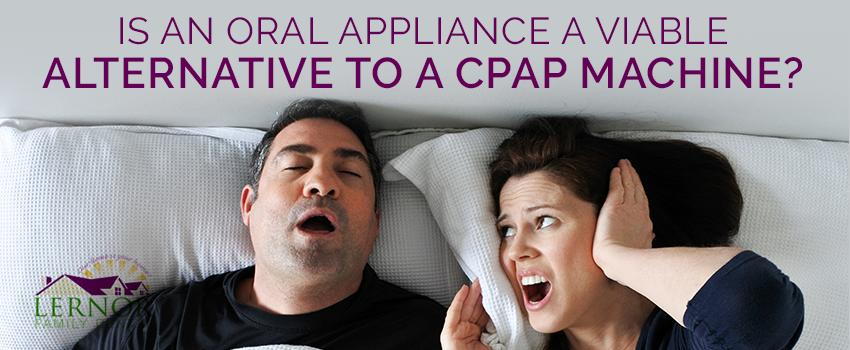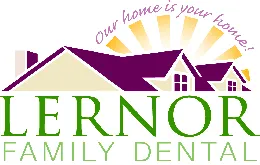
Before we answer this question let's quickly go over the uses for a CPAP and what it does. Later we will evaluate oral appliances and see if they are a viable alternative to a CPAP machine.What is Sleep Apnea? Sleep apnea is a serious condition that causes you to stop breathing in your sleep for a few seconds at a time. This can happen anywhere from five to 100 times per hour. This is a common disorder in the United States, affecting 22 million Americans. The most diagnosed form of sleep apnea is obstructive sleep apnea (OSA). Someone suffering from this condition stops breathing while sleeping. This is due to the muscles in the throat relaxing and obstructing or blocking the airway. Central Sleep Apnea (CSA) is less common. With CSA the brain doesn't send proper signals to the throat muscles, telling them when to open and close. The third and final form of sleep apnea is called Complex Sleep Apnea Syndrome. It is also known as treatment-emergent central sleep apnea. This is the least common and most complex form, as it is a combination of OSA and CSA. If diagnosed with sleep apnea what are the treatment options? CPAP Machine:CPAP or continuous positive airway pressure therapy is the most common treatment for sleep apnea. A CPAP machine has a hose connected to it with a mask or nose piece on the end of it. It works by delivering pressurized air to the throat, allowing the airway to stay open. Though a CPAP works very well to regulate breathing while sleeping it also has its disadvantages. These include discomfort while wearing the cumbersome mask, dry nose and mouth, skin irritations, and feeling claustrophobic. It can also be very inconvenient to pack and travel with. Using one often requires that you fill it with distilled water if the machine is equipped with a humidifier. Oral Appliance: Thankfully for some sleep apnea sufferers, there is a viable alternative to using a bulky, loud machine. An oral sleep appliance provided by your dentist can be a great option as an alternative to a CPAP machine. At Lernor Family Dental we are here to help. If you are a good candidate, after a sleep study has been performed by a sleep medicine physician and the physician has recommended an oral appliance, we will take a series of dental impressions in order for you to be properly fitted for your new appliance. These hard acrylic mouthpieces consists of an upper and a lower piece that fit over your teeth, which are often connected together by flexible straps. The lower jaw is purposely protruded forward allowing the airway to remain open while sleeping. These appliances are easy to clean and travel with. They are also great for people that suffer from bruxism (teeth grinding) because it will prevent wear. As with many good things, oral appliances also come with their disadvantages. Some patients complain of a sore jaw, teeth discomfort or bite changes. In this case they may need the addition of a morning deprogrammer which will help the jaw go back to its original position, eliminating most discomfort. Health insurance covers oral sleep appliances in most cases, as long as they are prescribed by your physician and you are CPAP intolerant. They work best for those suffering from mild to moderate OSA. Do I Have Sleep Apnea? Perhaps you are reading this and wondering if you are one of the 22 million Americans suffering from sleep apnea. Here are some indications that could mean you should see your doctor for testing. Signs and Symptoms: Snoring is a sign that you may have sleep apnea. Also, if you sleep the recommended 7-9 hours a night but still feel tired all day, you should get tested. Other symptoms include waking up suddenly during the night gasping for air, morning headaches, and sleepiness while driving or sitting still throughout the day. This condition can be very dangerous. If you think you may have sleep apnea and feel like you would prefer an appliance over a CPAP then you should give Lernor Family Dental a call. We will guide you through the process of being tested and work with you and your doctor to help you decide on the proper treatment. Testing and Diagnosis: In order to be properly diagnosed with sleep apnea, you will need to undergo a sleep study (polysomnogram). During this overnight test you will actually sleep at the clinic administering the examination. You will be connected to several sensor wires which allow machines to track your breathing habits, record brain activity, eye movements, heart rate, blood pressure, oxygen levels and body movement. The test administrator will observe you while you sleep and constantly check the machine’s monitors. In some cases, you may qualify to have an at home sleep study for your comfort. You will be provided with and shown how to use the equipment which will record your sleep pattern. Once testing is complete, you will return everything to the sleep clinic it was picked up from and they will have a specialist review the results. Not everyone will qualify for an at home sleep study. Candidates include patients who are suspected to have moderate to severe obstructive sleep apnea. If you have chronic obstructive pulmonary disease, congestive heart failure, or neuromuscular disease, then you will likely not be able to perform an at home sleep study. Again, once properly diagnosed, we can work with your medical practitioner to determine if a CPAP or oral appliance is the best treatment option for you. Who is at Risk of Developing Sleep Apnea: Excess weight is the most common risk factor for developing obstructive sleep apnea. The nicotine in tobacco relaxes the muscles that keep the airway open. So, if you smoke or use smokeless tobacco you are more likely to develop OSA that other people. Sleep apnea affects individuals of all ages, however it is more common in individuals 50 and older. Menopausal and postmenopausal women are also at a higher risk. Take Action: Sleep apnea often times goes undiagnosed. If you are struggling to sleep during the night or to stay awake throughout the day, call our sleep apnea dentist in Phoenix. Don’t wait any longer. You owe it to yourself to get a good night’s rest.
________________________
Are you trying to determine the best options to treat your sleep apnea? Contact Dr. Lernor, the top sleep apnea dentist in Phoenix, to learn about all of your treatment options. Call (602) 483-4112 or request your appointment online today!
